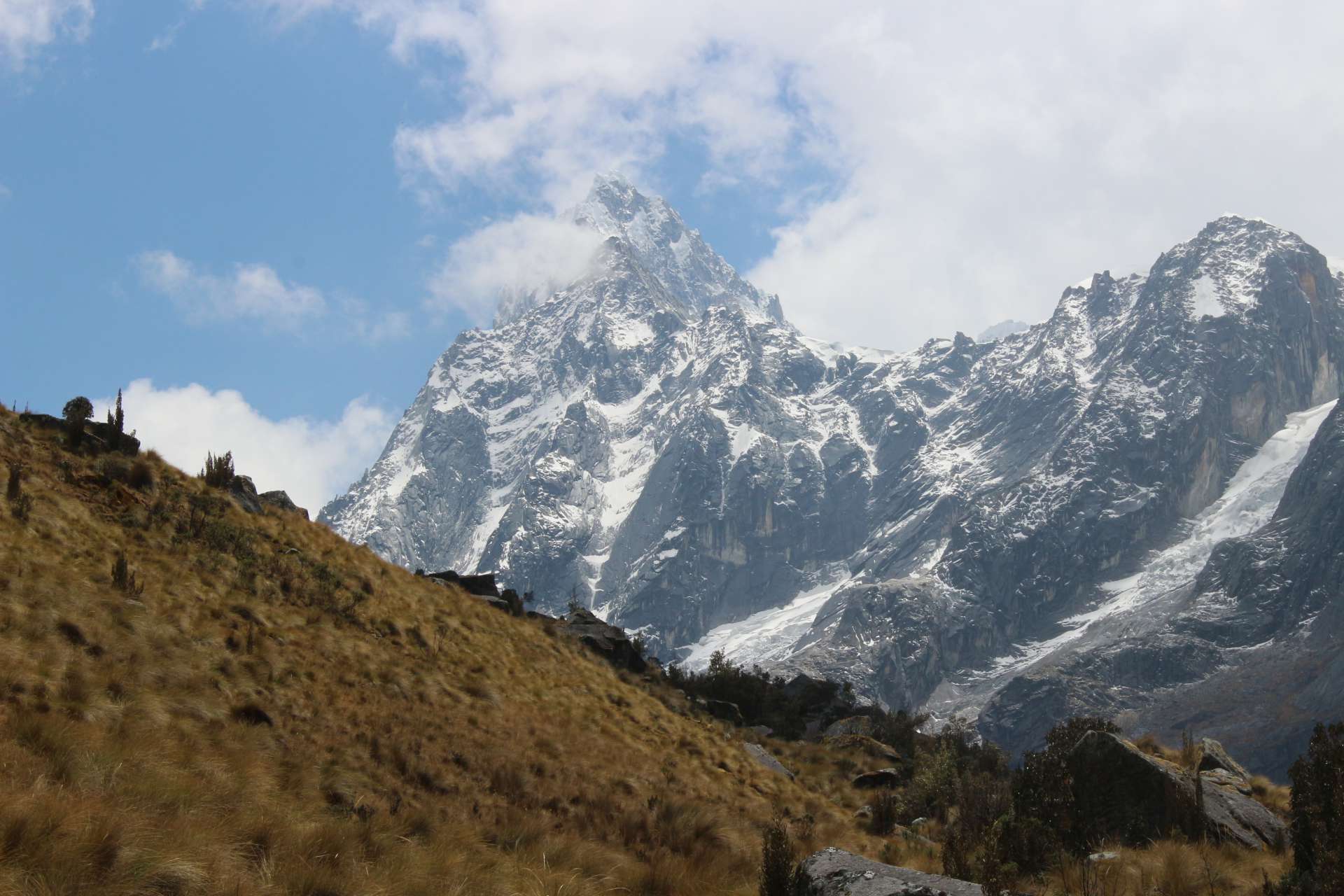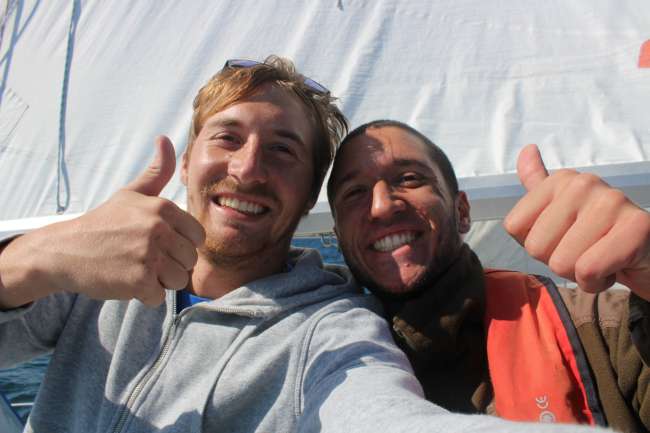Medellin- A City in Transition
Lolomiina: 22.10.2016
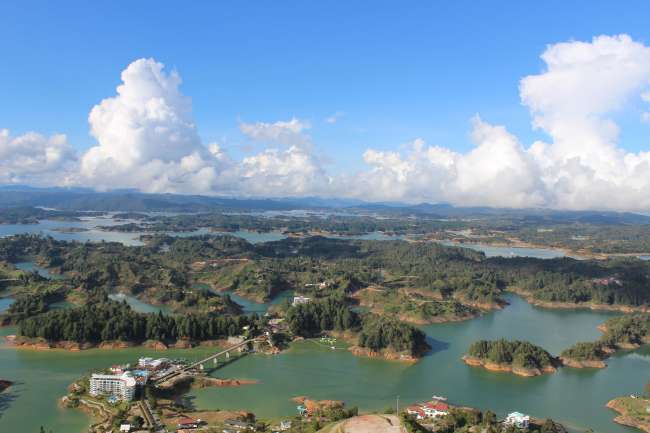
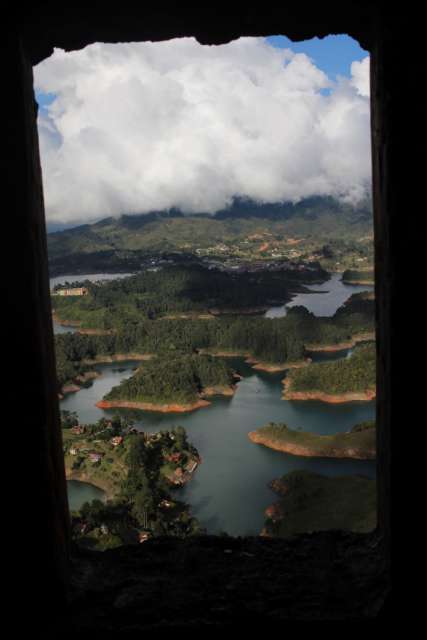
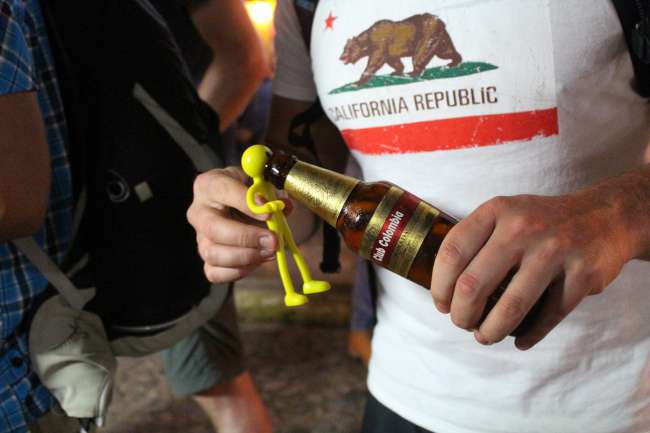
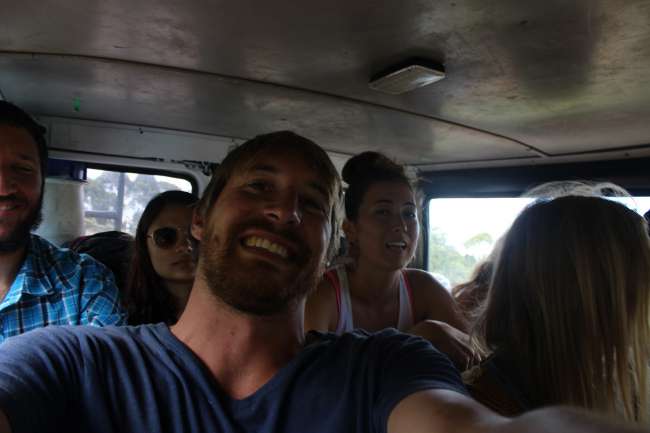
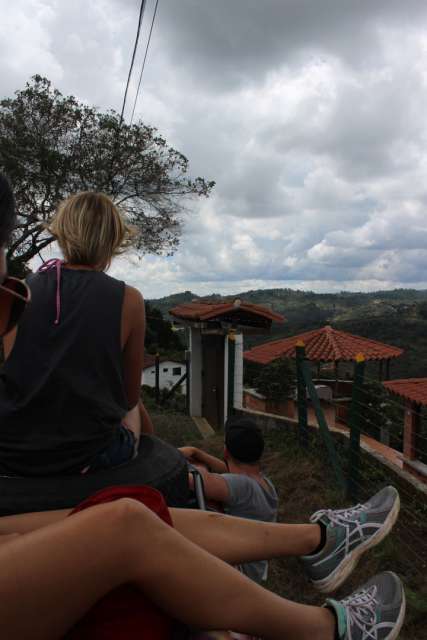
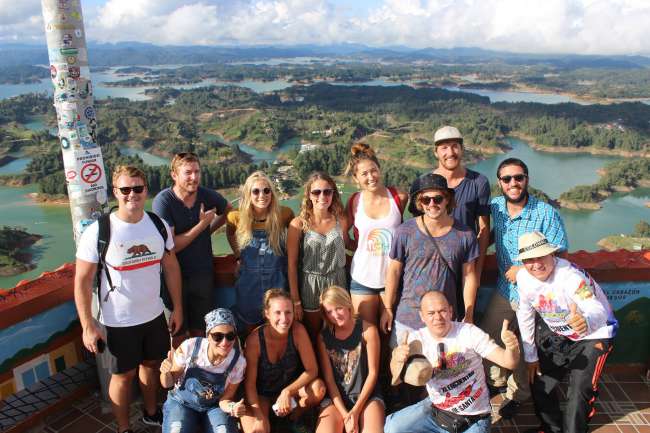
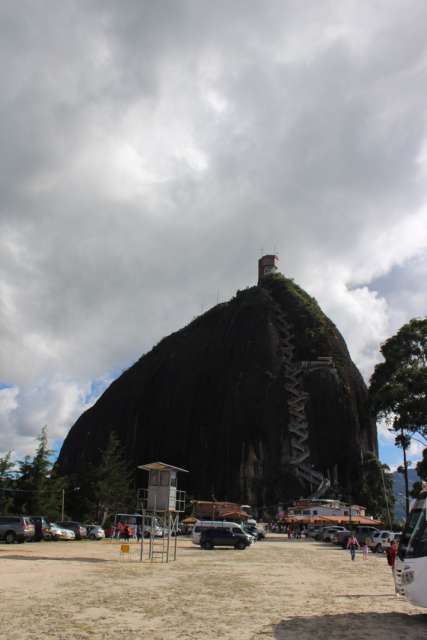
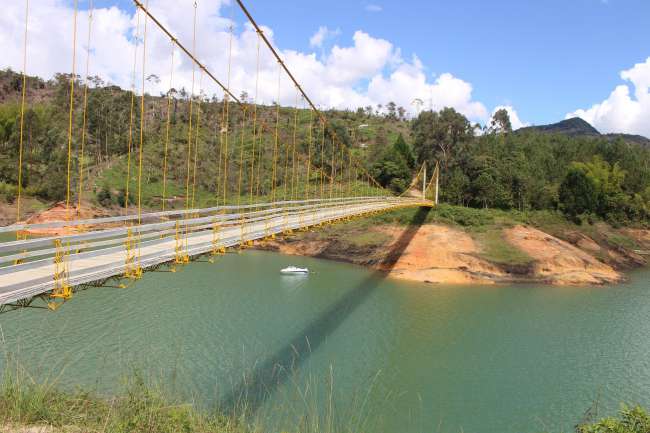
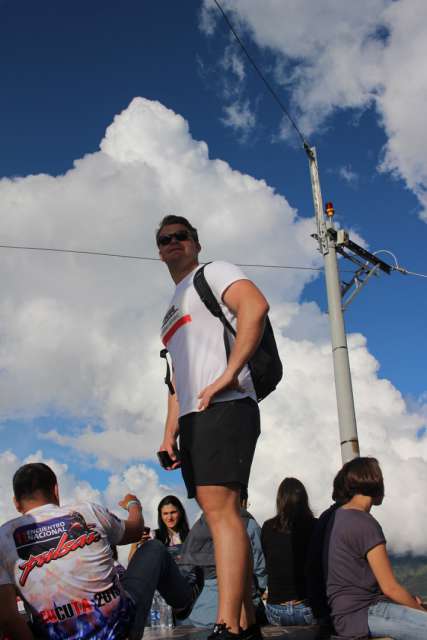
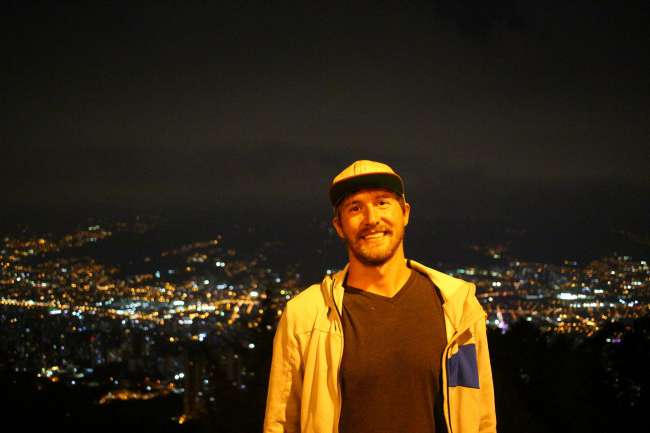
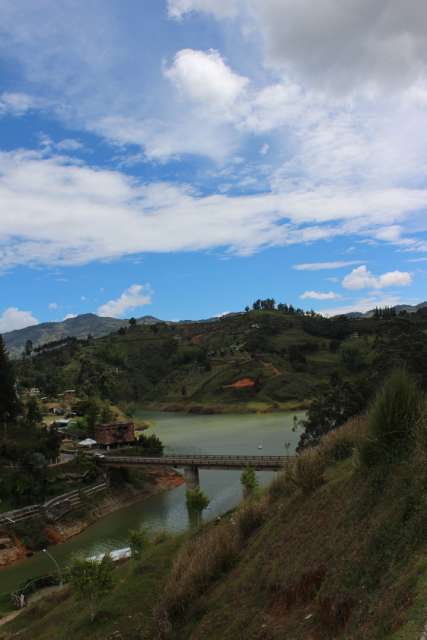
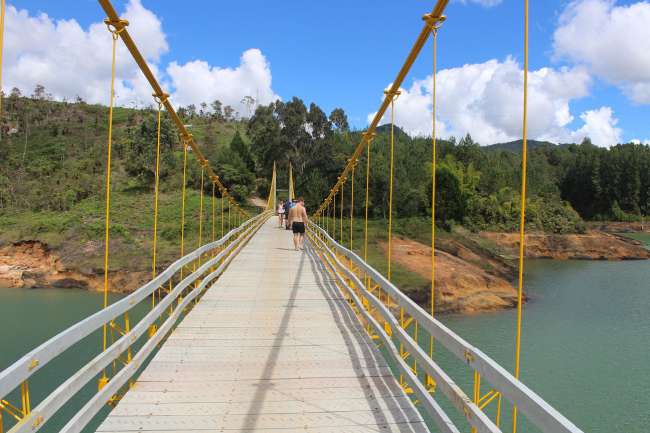
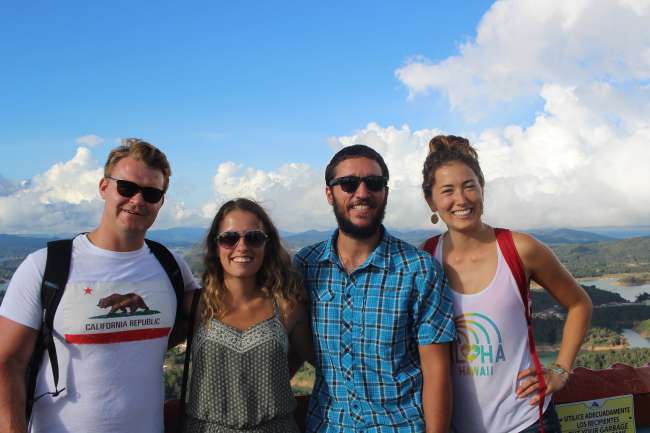
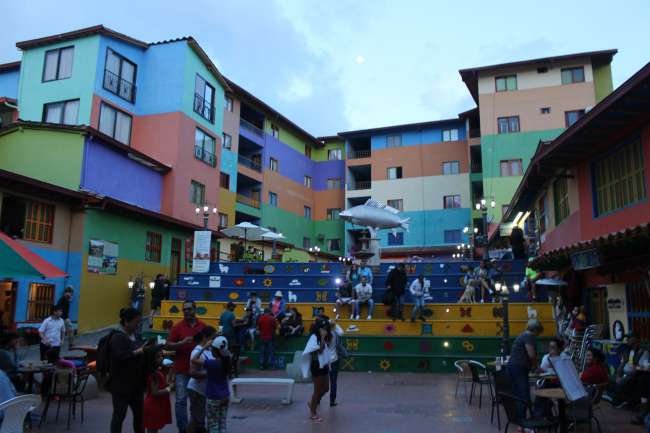
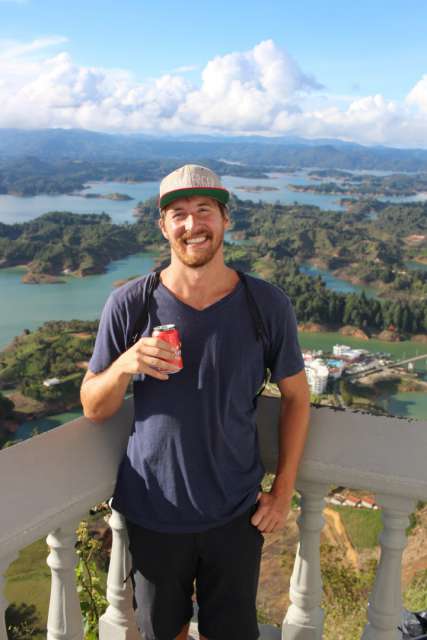
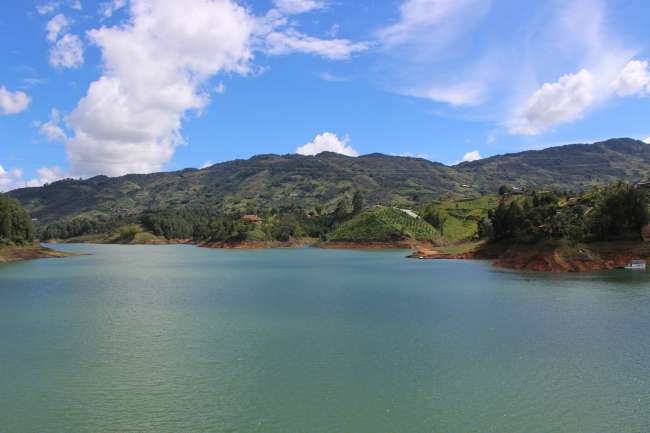
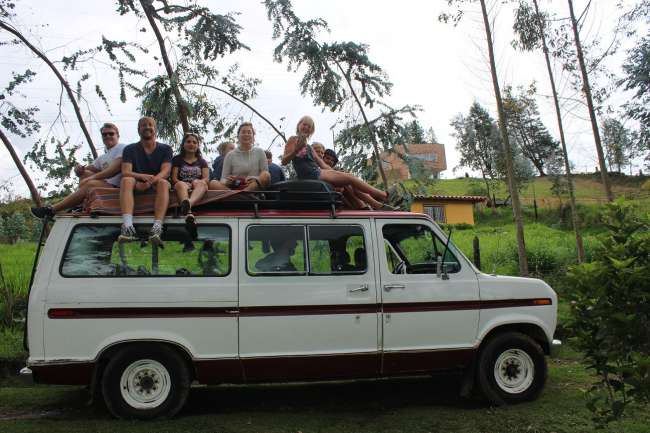
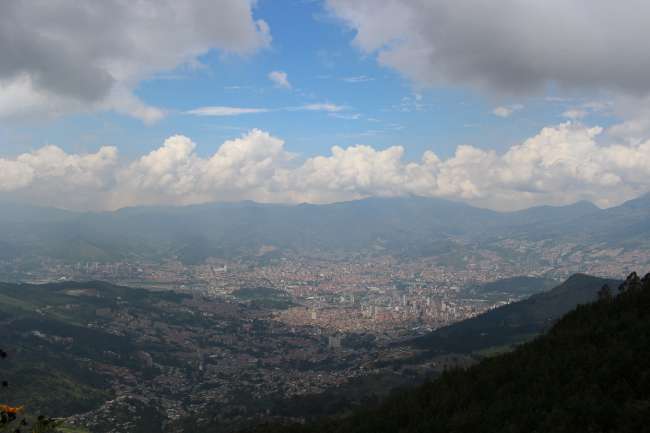
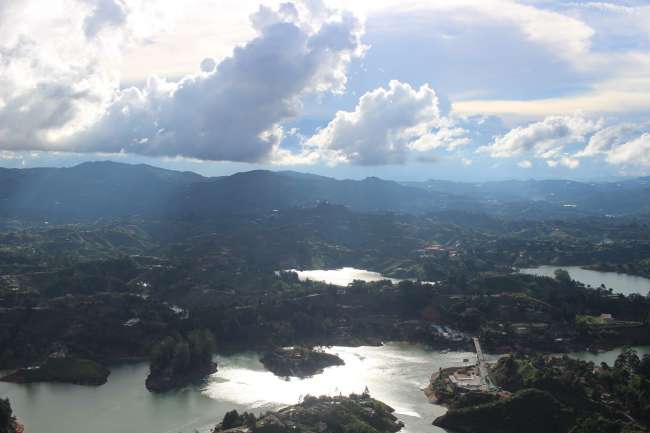
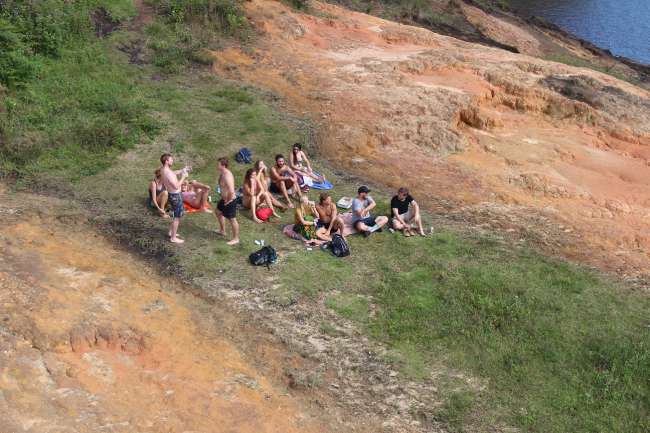
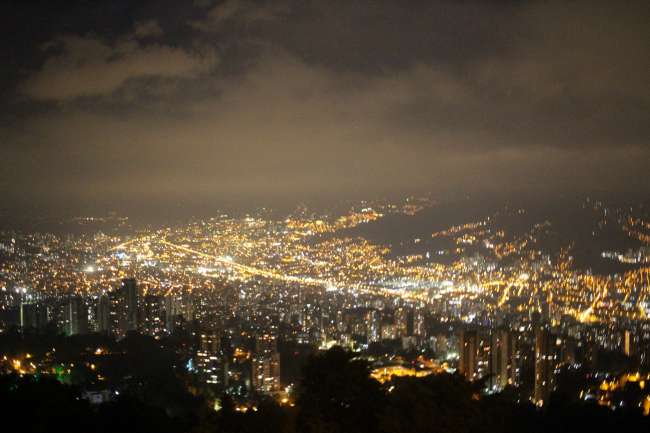
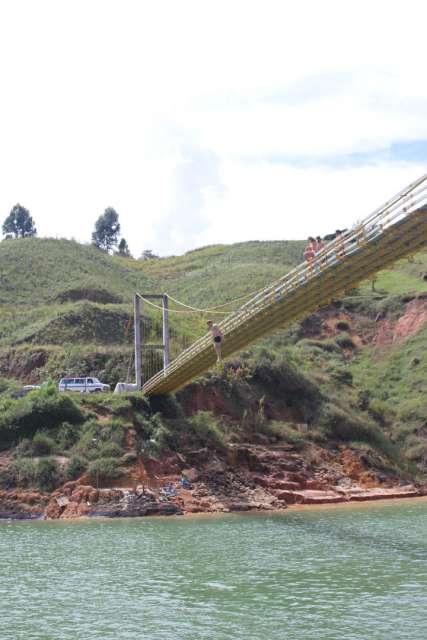
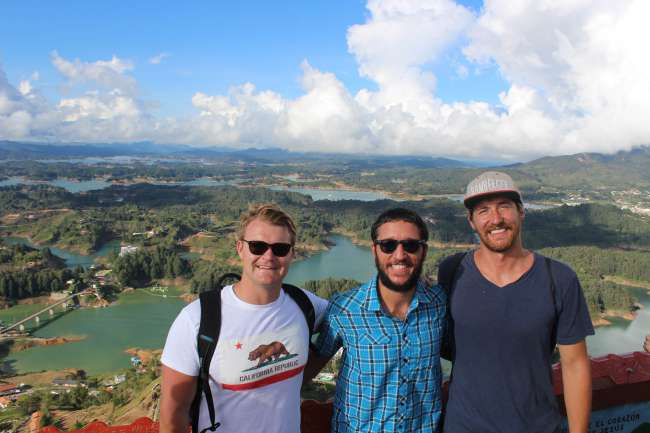
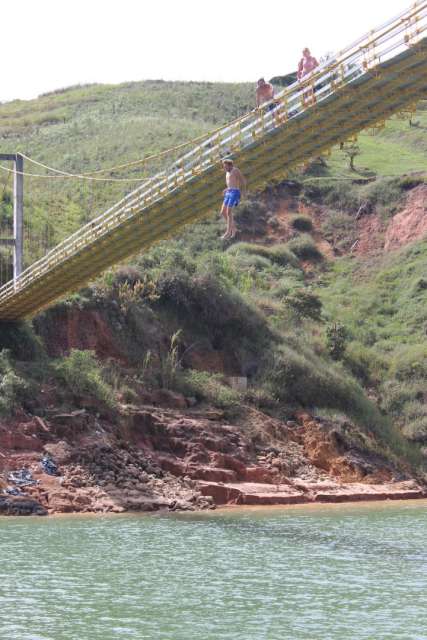
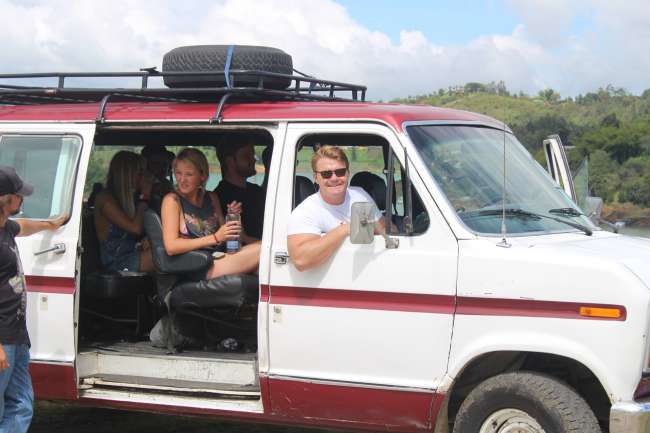
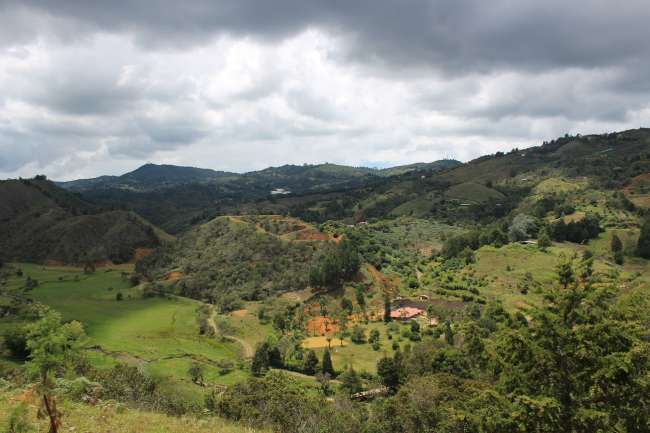
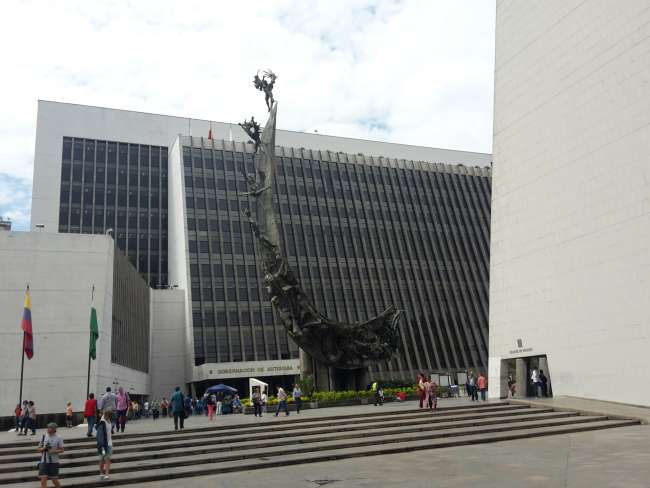
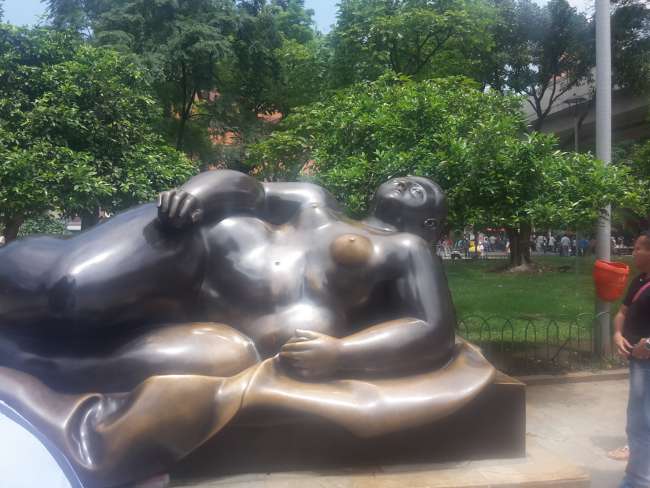
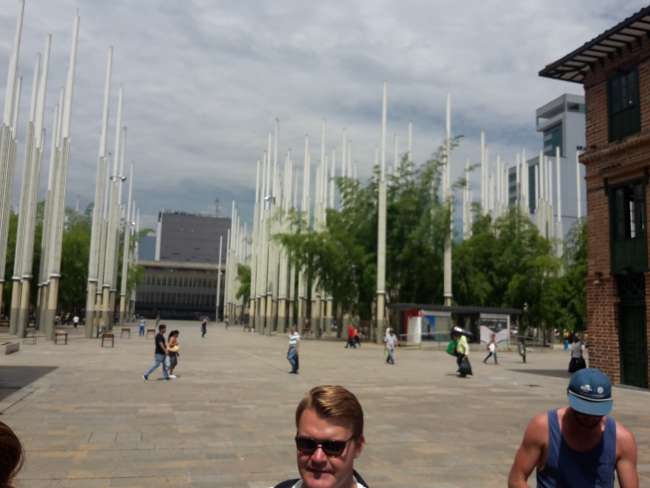
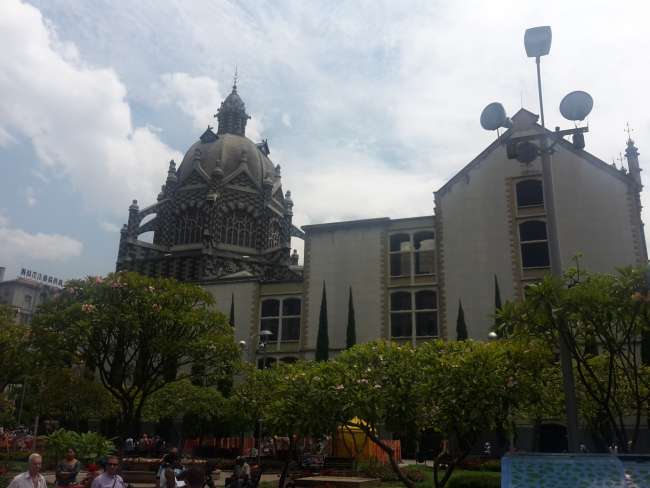
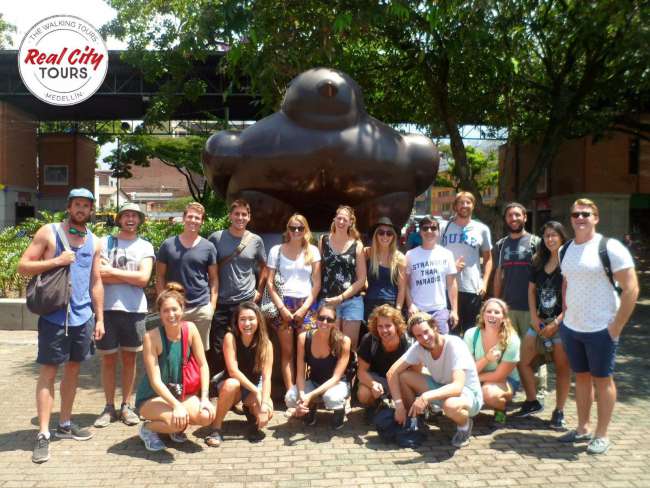
Fa'asoa ile Newsletter
From Santa Marta, our plane takes us to Medellin. This city was considered the most dangerous in the world just ten years ago, known as the hometown of Pablo Escobar and the drug cartels. But everyone we meet recommends that we go there. But before the plane can take us to this mythical city, we have to make sure our backpacks weigh less than 20kg. At the airport, the decision is made (Marius 18.82kg; Max 19.86kg). We just made it and can board the plane. The flight takes us through a beautiful thunderstorm, with slight turbulence, inland towards Colombia's second largest city. Once we arrive, we take a taxi to our hostel. The taxi driver has probably watched too much 2 Fast 2 Furious and zigzags between the other cars on the way to Medellin. After about half an hour, we can already see it. A gigantic sea of lights appears before us in the valley, stretching up the surrounding mountains. After about an hour, we reach our hostel and meet some old acquaintances. Chip and Rhys are already waiting for us (unfortunately with a broken foot), and we went to this hostel based on their recommendation. After a warm welcome and the first beers, we also meet Kelsey from Huanchaco (you foolish fool), as well as her friend Ceone, a Hawaiian. The next day, we use to look for a Kindle. We search through all the malls and electronics stores, but find nothing. However, we get a first impression of the surrounding neighborhood. This area is predominantly inhabited by wealthy people, as can be easily seen by the flashy cars and houses. Another indication is the almost complete absence of police (who are very corrupt), and the reliance on private security services for public safety. On Chip's recommendation, we sign up for a tour to Guatapé the next day, which Ceone and Nathalie from Germany have also signed up for. We leave at 9:30 a.m. We are picked up by Raffael, a cheerful and friendly Colombian, in his old American van. We leave Medellin and head towards the surrounding mountains. Along the way, we make stops to enjoy a viewpoint of the city, pick up musicians who perform live in the van, or simply to enjoy regional food specialties and fruits. We are accompanied by Raffael's brilliant playlist and his open and good-natured personality. The whole tour doesn't feel like a tour, but more like a road trip with friends. We laugh, chat, sing along, and sway to the music. Our first stop takes us to Raffael's house in the mountains, where we are served a gigantic breakfast. Fruits, homemade bread, and omelets with spinach and everything your heart desires. Some take the time to play a little soccer, while others pet Raffael's dog or the baby cat. After about an hour, we continue our journey. Raffael gives us the opportunity to ride on the roof of the van, which we naturally don't want to miss. Almost the entire group sits on the roof, and the ride over dirt roads through breathtaking mountain landscapes begins. In the meantime, almost everyone is thrown off the roof when Nathalie knocks loudly on the roof and Raffael slams on the brakes out of concern. We just wanted him to turn up the music. After about 20 minutes and countless branches in our faces, we reach a larger road again, and everyone has to get back into the van. Another 10 minutes later, we arrive at the replica, a small reconstructed village where we enjoy our first beer. Around us is a river dammed for a hydroelectric power plant, which has buried an entire city underneath it. The church and the surrounding houses have been rebuilt here as replicas. You can still see the cross of the old church sticking out of the water. After a short stay, we continue to a pedestrian suspension bridge about 20 meters high, which crosses part of the dammed river. Raffael gives us the opportunity to swim a little and those who want to can also jump from the bridge. The bathing area is wonderfully calm and offers a fantastic view from the bridge. Londoner Frankie is already there and jumps from the bridge without hesitation. That was the starting signal and almost everyone wants to jump. I decide to go to the shore and capture this spectacle on camera for everyone. Ollie takes about half an hour to let go, but he manages it too, so I feel encouraged to jump. Only Nathalie, Max, and I are left on the bridge. Max said right after getting out, "Well, I'm definitely not jumping." So I climb over the railing and take a few deep breaths before I can let go. It's an incredible feeling. The flight lasts almost 3 seconds, but it feels like ten, and all the time you think: Why haven't I hit the water yet?! After the jump, I swim back to shore, turn around, and see someone else jumping. Max simply decided to jump spontaneously and without a second thought. Unfortunately, there is no photo, only a video of him. After our swimming fun, Raffael surprises us with a nice treat, a German beer, and we continue our road trip to the famous rock of Guatapé. Upon arrival, 750 steps await us, which we climb straight away. Once at the top, we enjoy a gigantic view of the water landscape, the islands and villas, and the mountains in the background. We treat ourselves to a few relaxing beers on this magnificent view before we climb back down because it's time for food. While we were climbing, Raffael cooked and prepared various dishes. It tastes fantastic! Afterwards, he takes us to the cozy little town of Guatapé, where some of us take a short city tour and others enjoy another beer before we head back to Medellin. Guatapé is a small town with many colorful houses and alleys. The walls are decorated with historical embellishments that represent the occupation of the people living in the houses. Quite cute. So we enjoy the last two hours of our road trip with good music and new friends. Before heading into the city, we stop at a viewpoint with a view of the nighttime city. Unfortunately, I have to quote Chip here: "I have never seen such a beautiful city at night". And he was so right! Back at the hostel, the fantastic day is far from over. We bring out our last bottle of jungle schnapps and end the evening in the hostel in a big and cozy round. Unfortunately, we also have to say goodbye to Rhys that evening, who has to fly back to Australia the next morning for an operation. At this point: All good for you mate!
Thanks to Ceone's commitment, we started the next day with a city tour of downtown Medellin. Our tour guide Camello picks us up at the hostel, and we take the metro to the city center. We are immediately informed about the importance of the metro for the people here. It is a symbol of the rise of Medellin and it is respected! No one here eats or drinks in the metro, you won't find a scratch or graffiti, and there are no drunk people hanging around. Very impressive and very clean. Once we arrive in the city, we get a small introduction to Colombian history and Colombian thinking. We are reminded once again that Medellin was the most dangerous city in the world ten years ago, and we are asked to keep our eyes open for the changes. We start in the courthouse district. Ugly high-rise buildings adorn the squares, and a large monument depicts the history of Medellin, the city's boom through gold, coffee, and the railroad (industrialization). Our tour guide tells us that it was not the drug money that was responsible for the city's boom, but rather the gold reserves that were decisive for the city's growth much earlier. But he also tells us about the reality of drugs, a topic that Colombians prefer not to talk about. He also never uses the name Pablo Escobar. He is considered a Voldemort here, and people either refer to him as the notorious criminal of the city or as the man whose name shall not be mentioned. He tells us a lot about the FARC, the strongest left-wing radical group, and why so many Colombians voted "No" to the peace agreements with the FARC a week ago. He also tells us why he voted "Yes". The whole city tour, in fact the entire time in Medellin, gives you the feeling of being in a city of change. So much is happening every day, and Medellin, indeed the whole of Colombia, no longer wants to be associated with the image of cocaine and violence. In the meantime, our tour guide is constantly interrupted (at least five times), and complete strangers introduce themselves to our group and thank us for visiting their city. They welcome us and say that their city is our city too, and if we like it here, we should spread the word to the world. And that's exactly what we want to do; Colombia is awesome! After getting a first insight into the history and mentality of Colombians, we continue to downtown. This neighborhood and the main square were once the most dangerous place in Medellin. Here we learn a lot about the transformation of the city, the measures taken to turn areas of violence into places of peace and hope. Many columns have been erected on the main square, illuminating it at night and symbolizing the trees of hope. Buildings that once housed the headquarters of gangsters and gangs are now free educational facilities such as libraries. Education plays a very important role in Medellin. In many once dangerous areas, libraries with illuminated parks, skate parks, and sports facilities have been built, providing a safe place for young people. Another important point is infrastructure. Nowadays, many of the slums have electricity and water. The most important point is, of course, the metro. It enables people from the slums to travel through the city safely, affordably, and easily. When Medellin was deeply immersed in drugs and violence, they started building the metro. It is considered the city's lifeline. We are shown many other places where these fundamental principles are lived out. In the meantime, there is some time for coffee and a snack. When I walk alone to the bakery, I am approached by Colombians who thank me and are happy that we are visiting their city. It is hard to overlook the fact that I am the ultimate tourist here ;). Hardly anyone is over 1.80m tall. Then we get an insight into Colombian mentality. There is only one way: Look forward. Colombians have a selective memory and only remember the good things. That is why the time of the drug barons and the violence is not taught in schools, and nobody likes to talk about it. However, our guide tells us a lot about various attacks, violence, growing up in Medellin, about friends and acquaintances he has lost, and about difficult times and emerging hope. Throughout, you have the feeling of being in the right place at the right time. In a city full of friendly people and optimism. At the end of the tour, we come to a square where a major bomb attack took place during a concert. There is still a torn Botero statue next to which the same statue has been erected again, but larger. This serves as a memorial and a glimmer of hope for the city. Botero plays a major hopeful role in his city (his statues are everywhere). Now I will look at our "Fat Botero Lady" in Bamberg with different eyes. We have also learned much more on the city tour, for example about Colombian church architecture and various buildings, but that would take too long to describe in detail now. In conclusion, it can be said that the city's transformation, the welcoming culture, and the hope in the city can be felt everywhere. The people are extremely friendly and open-minded, but of course, the reality cannot be hidden. You still get offered drugs, especially cocaine, every five minutes, even at the hairdresser's. But no means no, and that's okay. As a white tourist, there are certainly some neighborhoods in Medellin that you shouldn't visit yet, and you should always keep an eye on your belongings in your pockets. But if you visit this city with common sense, you will come to love it and enjoy the time and the people here. There are plenty of areas where you can walk alone through the streets at night, you can party hard, and you will find many bars and clubs where you don't have to worry more than you would at home.
Finally, we would like to thank all our new friends and the Blacksheep Group. Thanks to Rhys, Chip, Ollie, Kobold, Ceone (I will suddenly appear in front of your food truck), Kelsey, Loren, Nathalie, Zlatina, Mike, and everyone else I have forgotten. It was a great time with all of you, take care and I hope we will all meet again somewhere. The whole experience can be described best in Ollie's words:
"What a great group of light-minded individuals"
Medellin, a fantastic city in transition. It was awesome to be here during this time of change!
More about Medellin in the next few days ;)
Greetings Max and Marius
Fa'asoa ile Newsletter
Tali
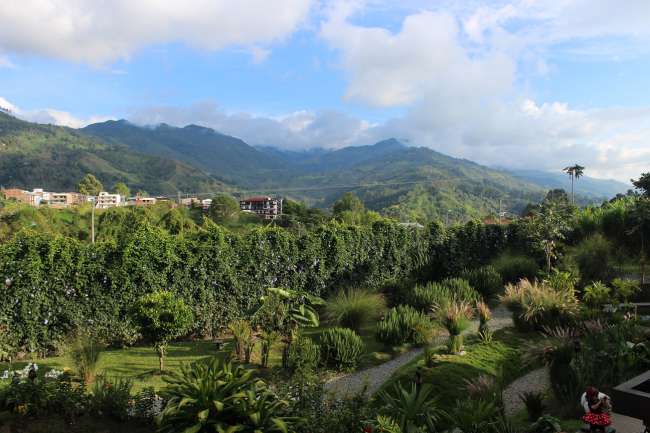
Lipoti o femalagaaiga Colombia
